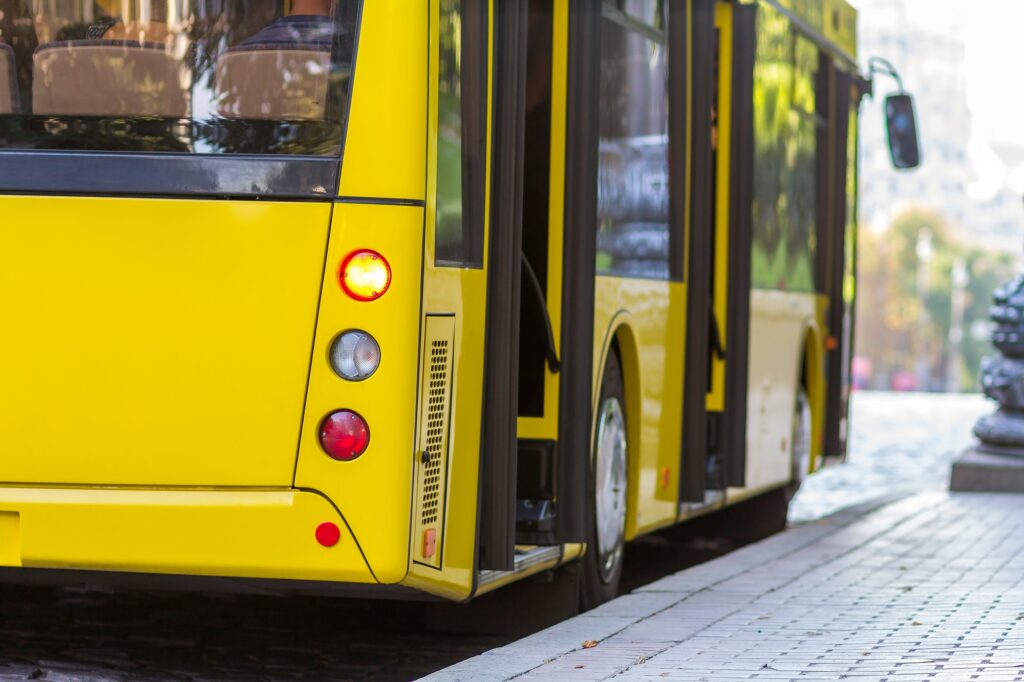
Serbia. Belgrade. A Revolutionary Approach to Public Transportation and Social Policy
Key Takeaways:
- Free Public Transportation: Starting January 1, 2025, public transport in Belgrade will be free for everyone, making it the first European city with over 500,000 residents to offer such a service.
- Comprehensive Transportation Overhaul: The city will replace its entire public transportation fleet with modern vehicles by 2027, including buses, trams, and trolleybuses.
- Social Policy Expansion: Belgrade is implementing a series of social benefits, including free kindergartens, financial assistance for students, and free access to swimming pools.
- Focus on Accessibility and Equity: These changes aim to improve residents’ quality of life and reduce the cost of living.
Imagine a city where buses, trams, and trolleys glide through the streets without a single ticket sale. Starting January 1, 2025, Belgrade will turn this vision into reality. Under a sweeping reform spearheaded by Mayor Aleksandar Šapić, all public transportation in Serbia’s capital will be completely free of charge. This bold initiative not only redefines mobility but also positions Belgrade as a leader in innovative urban policies, being the first city of its size in Europe to embrace free public transit for all.
Revolutionizing Public Transport
Free public transportation is just the beginning. The city has committed to overhauling its entire fleet to ensure it meets modern standards. Here’s what’s planned:
- Brand New Buses: By the end of 2025, all buses in Belgrade, both privately and publicly operated, will be no older than two years. This ensures safety, comfort, and environmental efficiency for commuters.
- State-of-the-Art Trams: The city has already procured 25 new trams, which will begin rolling out in 2025. Beyond this, Belgrade plans to replace its remaining 120 trams by 2027, modernizing its rail infrastructure.
- Updated Trolleybuses: By the end of 2027, every trolleybus will also be replaced, providing a consistent and modern fleet throughout the city.
- Public-Private Partnerships: The government is exploring collaborations with private entities to finance and manage these upgrades, ensuring timely delivery without overburdening municipal resources.
These changes aim to improve not only the efficiency of public transport but also its reliability and accessibility, making it an attractive alternative to private vehicles.
An Ambitious Social Policy Framework
The free transport initiative is part of a broader effort to improve living standards across the city. Belgrade’s government has rolled out several measures designed to provide relief and opportunities for its residents:
- Free Kindergartens: Education is a top priority. By removing fees for kindergartens, the city has enabled an additional 3,000 children to enroll, easing financial pressure on families.
- Student Support: Families with school-age children receive 20,000 dinars in financial assistance for educational expenses, ensuring that no child is left behind due to economic hardship.
- Free Access to Swimming Pools: During the summer months, residents can enjoy municipal swimming pools without paying a fee, a benefit valued at approximately 40,000 dinars per person annually.
- New Year’s Gift Vouchers: To celebrate the holiday season, every child under 19 and employees of educational institutions will receive 6,000 dinars in gift vouchers.
- Free English Lessons: Preschool-aged children are now entitled to free English language courses, worth 3,500 dinars per month, providing an early start to language education.
Why This Matters
Belgrade’s initiatives represent a broader vision for a more equitable and accessible urban environment. By removing the financial barriers associated with public transport, the city is empowering its residents to move freely, whether for work, education, or leisure. In my opinion, this model could set a precedent for other cities worldwide, showcasing how urban policy can be both socially progressive and economically viable.
The city’s investments in education and recreational services reflect a commitment to building a community where every resident has access to opportunities, regardless of their economic status. This is particularly crucial in today’s world, where rising living costs often leave families struggling to make ends meet.
Challenges Ahead
While the vision is inspiring, implementing such sweeping reforms is not without its challenges. The logistics of maintaining a modernized fleet, funding these ambitious projects, and ensuring the long-term sustainability of free public transport will require careful planning and robust governance.
Moreover, it raises questions about whether the model can be replicated in other cities. Critics may point out potential financial strains or the risk of overcrowding in a free system. However, Belgrade’s bold approach demonstrates that with proper management and vision, these challenges can be addressed.
Looking Forward
In my view, Belgrade’s efforts mark a transformative moment for urban policy. By making transportation free and modernizing its infrastructure, the city is not just improving mobility but redefining what a city can offer its residents. These changes, combined with broader social programs, are a testament to the power of forward-thinking governance.
For residents of Belgrade, January 1, 2025, is not just a date—it’s the beginning of a new chapter. And for cities around the world, it might just be a glimpse into the future.
#
